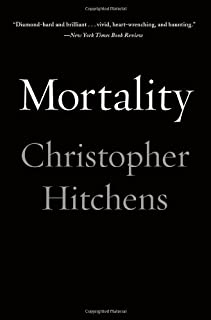Mortality
“Mortality” by Christopher Hitchens is a poignant and introspective exploration of the author’s struggle with terminal illness. Here’s a summary of the key themes and insights from the book:
Diagnosis and Reflection
Christopher Hitchens, known for his sharp intellect and prolific writing, was diagnosed with esophageal cancer in 2010. “Mortality” chronicles his initial shock at the diagnosis and his subsequent reflections on mortality, illness, and the prospect of impending death.
Physical and Emotional Journey
Hitchens describes the physical toll of cancer treatment, including chemotherapy and its side effects, as well as the emotional rollercoaster of facing a life-threatening illness. He candidly discusses the pain, discomfort, and challenges of living with a terminal condition.
Atheism and Facing Death
As a staunch atheist and intellectual, Hitchens grapples with the idea of death without belief in an afterlife. He reflects on the meaning of life, the nature of suffering, and the inevitability of death, offering philosophical insights and personal observations on these profound topics.
Literary and Cultural References
Throughout the book, Hitchens draws on his vast knowledge of literature, philosophy, and history to contextualize his thoughts on illness and mortality. He references various authors, poets, and thinkers who have explored similar themes, adding depth and richness to his reflections.
Loss of Independence and Dignity
Hitchens discusses the loss of physical independence and the impact of illness on his daily life. He confronts the gradual decline of his health with characteristic wit and introspection, grappling with the loss of control and the changing dynamics of his relationships.
Legacy and Final Thoughts
“Mortality” serves not only as a personal memoir but also as a meditation on legacy and the impact of one’s life’s work. Hitchens reflects on his career as a writer and public intellectual, contemplating how his illness shapes his perspective on his achievements and regrets.
Conclusion
In conclusion, “Mortality” is a powerful and thought-provoking exploration of life’s fragility and the human experience of illness and death. Christopher Hitchens confronts his mortality with intellectual curiosity, emotional honesty, and literary grace, leaving readers with profound insights into the nature of life and the inevitability of its end.

